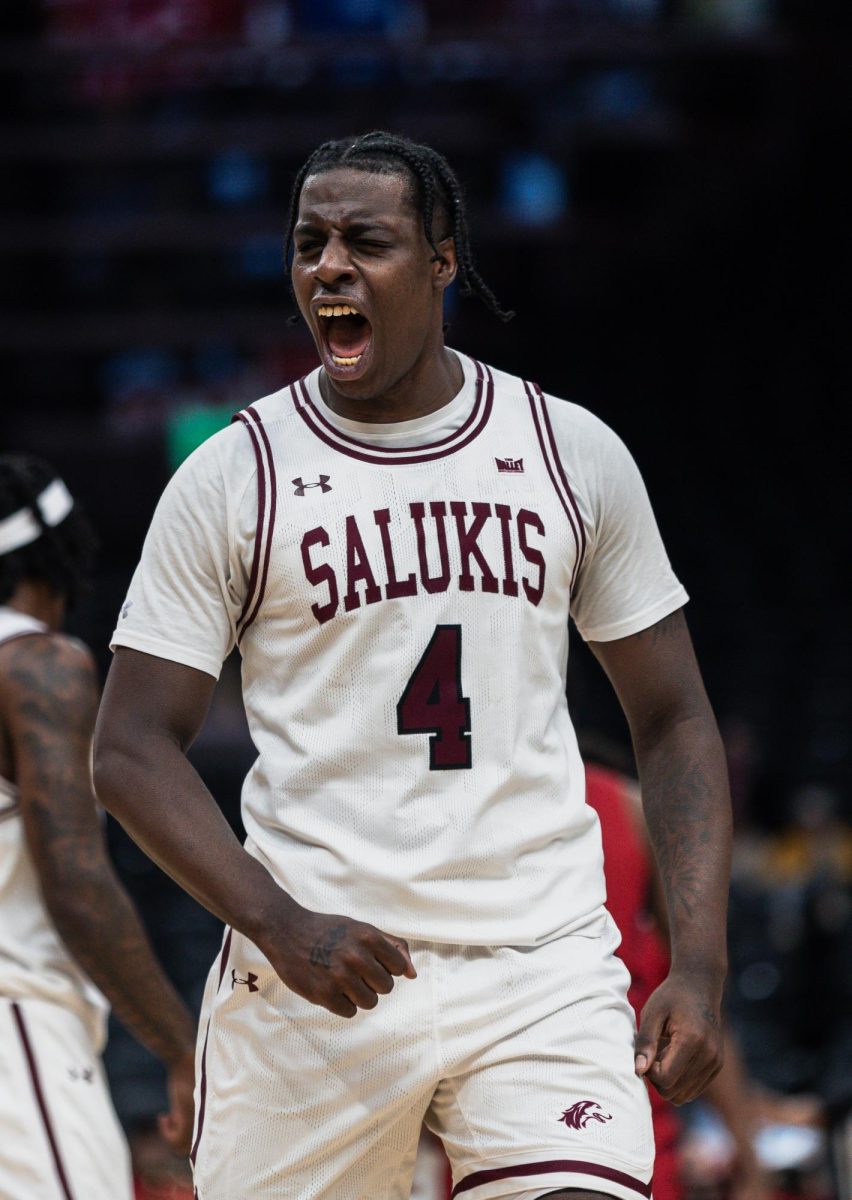Peer mentor interviews complete
February 4, 2013
A university mentor program started last semester has made changes and completed interviews as they prepare to assist a new group of students.
New Student Programs coordinator Phil Campbell, along with some past peer mentors, conducted Saluki Peer Mentors interviews Saturday. Campbell said he had 140 student applicants and saw between 120 and 130 interviewees Saturday. He said 100-130 students will be hired as mentors, and 40 will be designated as New Student Orientation leaders — a change the program made this semester.
The role is crucial to SIU’s front-door image, he said.
Advertisement
“They are representing SIU,” Campbell said. “They are one of the first impressions that the institution is providing the students and their families, so we designed our interview process to mimic that whether they work in a team or one-on-one setting.”
Campbell said a student needs at least a 2.5 grade point average, two semesters completed at the university and to be in good standing with the university and law to be a peer mentor.
Different mentorship programs have exsisted across campus for a long time, he said, but last year was the first year the peer mentors program was started alongside the University College 101 class. The program’s changes are based on mentors’ experiences during fall UCOL 101 courses, he said.
Campbell said he received approval last year to initiate the program in March. With interviews conducted earlier this year, training will start in the spring and continue into fall before classes, he said.
“I had basically April to do all the recruitment, marketing, outreach, interviewing and hiring with the only time frame to do training in the fall before classes started,” he said.
Campbell said the extra training time will improve the program and help develop mentors as leaders. She said it will also allow the mentors to get to know the instructors they work with through UCOL 101 courses.
The same mentors who work with students during the week of welcome will now be the same mentors in their UCOL classes, he said.
Advertisement*
“We are building more communication plans, both prior to students coming to New Student Orientation and after New Student Orientation when they are starting to get to know the mentors earlier,” Campbell said.
Amber Manning, a UCOL 101 instructor, said peer mentors are an essential course element.
“When new students come to orientation, there is a gap between orientation mentors and the peer mentors, so we want to close that gap,” Manning said.
Kyla Williams, a sophomore peer mentor from Chicago studying fashion merchandising, said mentors will help any student who will accept the assistance, but it was harder to help the students who would not attend UCOL 101 classes.
“It benefits them in a way that you can connect with students face-to-face instead of meeting with a professor, which can sometimes be intimidating,” she said.
While Williams said she saw some students progress through the semester, she noticed others were absent from class or not using their available resources given to them toward the end.
“I see the tendency that students don’t benefit from the peer mentors in the class, and that’s their loss,” Williams said.
Delila Brandon, a sophomore peer mentor and orientation leader from Owensville, Mo., studying zoology, said her experience helped her realize the peer mentor and student orientation program integration’s benefits.
“I saw many of the same students at orientation in my UCOL class,” she said. “It was cool to connect with them early on and then continue the relationship through the semester.”
Brandon said establishing a connection early helped the students and her discuss school matters. She said being employed in both organizations helped her build students’ trust.
Ashley Stegall, a sophomore peer mentor and orientation leader from Earlville studying university studies, said she sees students become more open and involved when they interact with her through the mentorship program.
“It was really cool to see the students that felt comfortable coming to me with a problem,” she said.
Stegall said students she met at orientation seemed more likely to approach her than others, and she would often go bowling or have coffee with her mentees. She said she valued the experience because she wants to work with incoming freshmen in her future career.
“It was a great way to get my foot through the door and get experience before I go into a future career,” she said.
Advertisement







